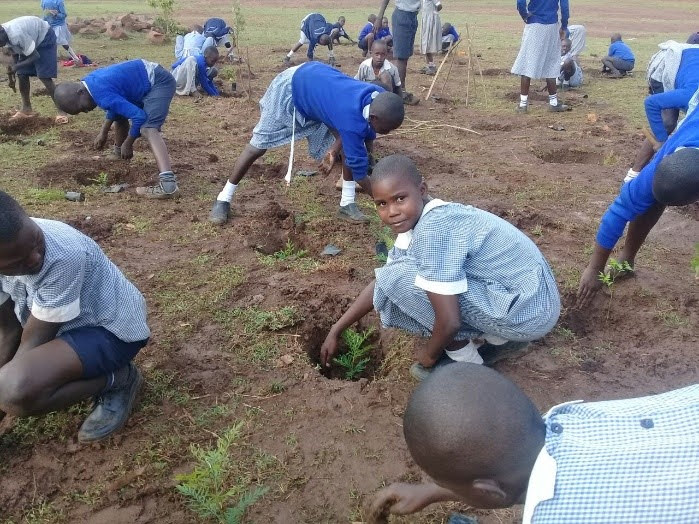Kenya’s private sector came together to showcase landscape restoration and make their contributions known.
By: Tengetile Zanele Mphila and Marion Aluoch
Enterprise solutions in landscape restoration are a way for the private sector to ‘pay back’ to the environment, said participants in a webinar hosted by the Regreening Africa programme of World Agroforestry (ICRAF) together with partners.
In an engaging and informative discussion about the private sector’s engagement in landscape restoration, held 27 May 2021, work was showcased that supported the Government’s commitment to restore 5.1 million hectares by 2030.
Key messages
- Invest in landscape restoration through corporate social investment to improve the welfare of farmers and communities through strategic partnerships.
- Involve whole value chains of non-timber products from drylands to promote livelihoods, create market links and bring economic activities to communities in the drylands.
- The private sector needs to understand the concept of natural capital accounting and start paying back to the environment.
- All need to be stewards of pest-control products, to control usage and protect the environment.
Teddy Kinyanjui, sustainability director at Seedball Kenya, explained that the private sector largely depends on ecosystem services for day-to-day operations, so it is crucial for the private sector to play a large role in landscape restoration.
‘The private sector needs to understand the concept of natural capital accounting and know the true cost of environmental impacts,’ he said.
Tommaso Menini, managing director of the African Agency for Arid Resources (AGAR Ltd), noted that investments in commodities in the arid and semi-arid lands is improving the living standards of the pastoralists they work with. The company works with the frankincense (Boswellia sacra), gum arabica (Acacia nilotica) and myrrh trees (Commiphora myrrha).
‘In collaboration with the Laikipia Permaculture Centre, we use a bottom–up approach to create enterprises where we train, capacitate and equip women’s groups to do their own formulation of aloe vera into products for the domestic market,’ said Tommaso.
Strategic partnerships through corporate social investment are also needed to restore degraded land. Forest Manager George Oselu and Environment and Climate Manager Michael Koech from Kenya Tea Development Agency Foundation and Safaricom PLC, respectively, demonstrated that these partnerships ensure that everyone involved in growing trees gains in the present and in the future.
Other speakers from Agrochemicals Association of Kenya, Better Globe Forestry and University of Nairobi argued that in as much as there are opportunities for the private sector to engage in landscape restoration, there are also challenges that highlighted and various solutions offered. The Government’s role in solving some of the challenges cannot be overlooked. The Government’s role is crucial for ensuring that the private sector can easily and positively engage in landscape restoration. The Government needs to regulate or deregulate laws that hinder the private sector from engaging in restoration.
***
This private-sector engagement webinar was one of several thematic webinars that have taken place since December 2020 and will culminate in a national land restoration conference, Kenya National Landscape Restoration Scaling Conference: Catalysing Action for Landscapes, 6–19 July 2021, where issues raised during the webinar will be addressed in depth. Other webinars included the Launch Of The National Land Restoration Scaling Conference, Youth Power in Restoration, roots of the FMNR movement and Forest Landscape Restoration Monitoring and Reporting.
This story was produced with the financial support of the European Union. Its contents are the sole responsibility of Regreening Africa and do not necessarily reflect the views of the European Union.

